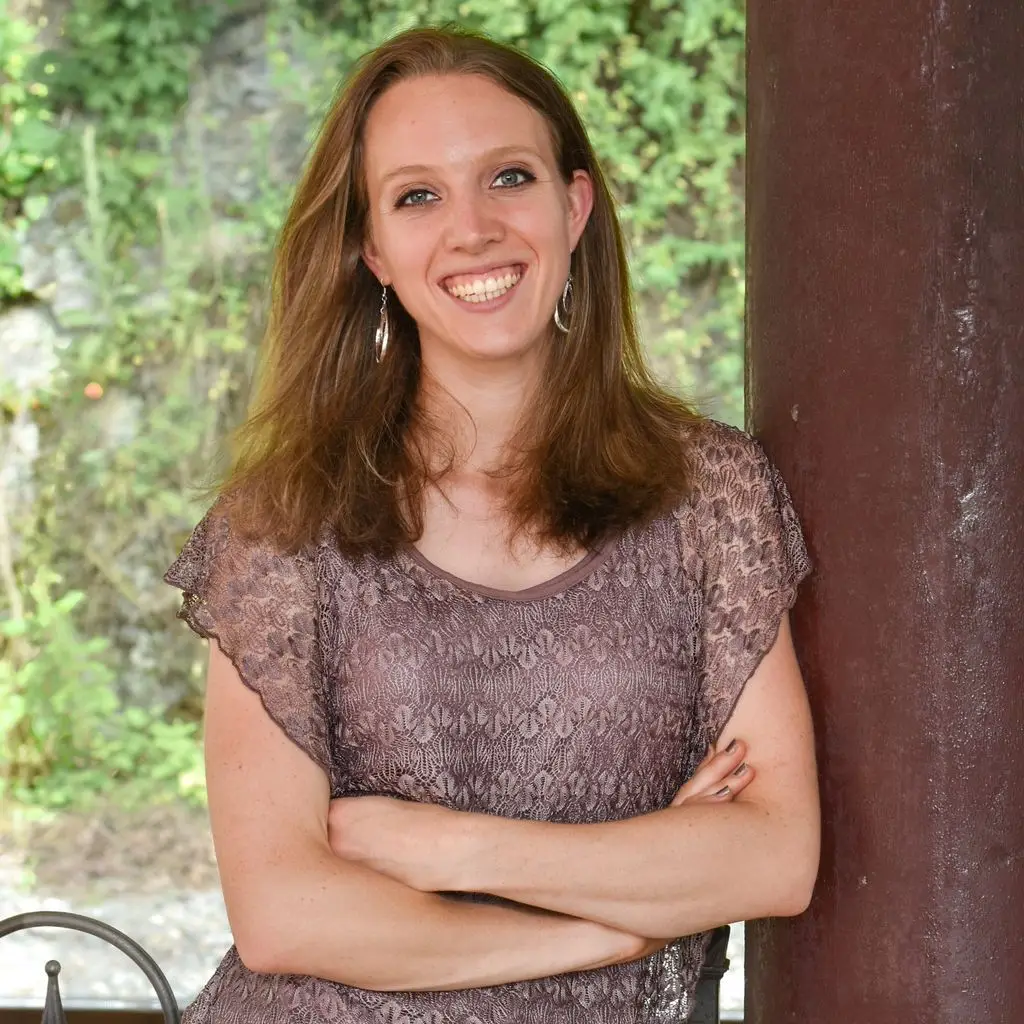Brave Enough to Rest

This post was originally published on The Road to Brave.
The floor wasn’t that far away. But it sure felt like it.
Back up I went. Back down I went. Only four times. It was supposed to be six at this weight.
It was a simple gym exercise (bless Nordic curls). Nothing big. Nothing important. A flush of would-be tears asked permission to take shape. NO, said I, swallowing against the tightened muscles at the back of my throat. They subsided.
Again. Four times. Rise, rinse (well, avoid rinsing), repeat.
Again.
The future of education in your inbox.
Get productivity tips, commentary, and Unbound updates sent to you!
About that time, attempting to harness what was usually a strong sense of empathy and make it face a mirror, I tried to turn, “You baby, nobody cries at the gym!” into “Hey, sooooo…this isn’t normal for you, what’s going on?”
Something about grace pointed inward is often a whole lot harder than grace outward. But I hear it gets easier with practice, so, more reps.
And when I slowed down enough to listen to my slightly-whimpering heart, I realized that this time, it’s nothing massively hard or difficult. I’ve just been burning the candle at both ends and constantly extroverting in the middle for a little longer than is probably healthy, and my margin batteries are apparently flashing empty. Probably a nap, some decaf coffee, a journal, and maybe just a tad of dark chocolate will have everything right as rain. But that means slowing down, and I’m already behind on basically everything, and do I really have time to do that…?
For context, this was me yesterday morning.
I’ve read John Mark Comer’s The Ruthless Elimination of Hurry and Jefferson Bethke’s To Hell With the Hustle and heard enough lectures on the topic of Biblical rest to be able to effectively write a small academic paper on why exactly a Christian ought to embrace it. And, like all of us, I’m still learning how to live that out in the ongoing extreme-backpacking-trip-esque-journey that is life under the sun.
Yep. Maybe I need to go re-read those books…
On one hand, our culture still worships the idol of sloth. We love leisure. We love passive entertainment (modern-day Rome, anyone?). We love easier-simpler-lighter-no effort-things. Life should be easy, we cry.
On the other hand, our culture also bows at the altar of success, defined in a secular age as fame, wealth, and/or power. If you’re successful, people know your name, or they know how crazy much money you have, or you have the ability to pull strings that no one can snip. And we say, Ah, they have arrived.
We reward overwork and overstress. If you haven’t heard the Japanese term karoshi, death by overwork, go look it up. We try to imitate those we have celebritized who work long hours at the office and few in their homes and fewer still in their churches. (Unless our identity-source is our work for the church, in which case we often pour hours out there as we try to feel valuable.) And modern-day eulogies are filled with tales of those who bought secular success hook, line, and sinker but had to sell their souls for it.
Sometimes it is so brave to push through, to drive forward, to keep running the race. But other times, the bravest thing we can do is to be still and embrace a genuine, Biblical kind of rest.
Rest isn’t laziness.
If you’re like me, try repeating it about 14,672 times and it might start sinking in. I come from a long line of go-getters. Our historical family culture is one of paying whatever you’ve got to pay and working however hard you’ve got to work and just doing it. (This was before Nike.) My great-grandfather, youngest member of a financially and emotionally/mentally struggling family, taught himself during significant sections of his education, did correspondence education with teachers several hours away from his tiny mining town, tested first in the state of CA during the Great Depression to make it into West Point, then graduated, got married, and shipped off to Omaha Beach. Another great-uncle worked over full-time while raising a family while getting his graduate degree while working on militarily classified aeronautical engineering missions.
(Those sorts of examples tend to shutter all excuses from the grandkids about the rigors of college life.)
And that personal ethic of working hard and taking care of things isn’t bad. No knee-jerking here to the opposite extreme of sloth. That long-standing family culture has accomplished some really amazing things, praise the Lord. But being an energetic person with a long-standing family history of hard work meant that it was easy to slip into the camp of assuming that any slacking off was bad. Heavens, girl. Run harder. You can go further than you think. Run.
But what I’ve been realizing over the last few years is that genuine Biblical rest isn’t laziness—in fact, God actually asks us to rest. Repeatedly. He modeled it in the Garden of Eden (HE, God, resting…). He commanded a weekly pause for His people. We get to enter His rest.
And there’s a pattern to all that rest. Part of that pattern is the Sabbath.
Sabbath
Speaking of John Mark Comer, he speaks far more eloquently on the subject of Sabbath than I can, so go read The Ruthless Elimination of Hurry (you’re welcome in advance). But let me tell you a personal story, one that happened years before I read TREOH.
Sometimes we need someone else, an outside perspective, to help us realize that another path is in fact possible. A few years back when I went to grad school for a music certificate, I found myself with more draws on time than I had time to draw. I was studying over full time, working part time, participating in several extracurricular activities, trying to attend a church young adult group, and attempting to keep a stubbornly resistant loneliness-induced depression at bay. There wasn’t enough time to go around.
Except there was. Apparently. In God’s economy of time, because I genuinely still don’t have an answer for this one. But my roommate introduced me to an at-the-time foreign concept. She didn’t study on Sundays.
Like, at all.
(Insert befuddled look from a regular weekend-study-er-person.)
That was her Sabbath time, and it was just a personal decision for her. Everything was done by Saturday night because it had to be.
Still scratching my head, I finally let my curiosity win out and decided to try the same thing. What was the worst that could happen?
And to be honest with you, I found myself in the same situation with time as I have found myself in with money. It’s always been a personal decision to keep setting aside a tithe no matter what. There have been times in my life where I genuinely don’t know how God has made finances work. As in, there shouldn’t have been enough in the bank account to tithe and live. Except somehow there always was. And there shouldn’t have been enough time to not study on Sundays. Except somehow there always was. And not only did I just not study on Sundays, save 1-2 emergency exceptions, but I also found some Saturdays that could be set aside for visiting friends and building community. How, I still have no clue.
But it taught me a lot. One of those things is that my life goes much, much better when I choose to
Be Still.
“Be still and know that I am God.” (Ps. 46:10)
Stillness is hard for me physically and it’s hard for my overeager and overanxious heart.
But my need for rest reminds me that I’m not God and I never have to be. And that reminder is one I desperately need, a deep breath for my heart. It’s okay to be human. It’s okay to need sleep, to need stillness, to need time with Jesus doing the things that fill up my soul and heart and mind and body again. If I can’t rest, I am denying God’s direction to me, and I’m also denying that I’m human, which is, in fact, the way God made me.
Rest does mean that I can’t say yes to everything, which is another issue I’m still learning and wrestling with. See Brave Enough to Say No. 🙂 But that’s a good lesson to be learning.
Rest also doesn’t automatically equal sleep. Or lounging around. It could mean those things, if that’s what you need to be restored. But it could also mean hiking. Reading. Studying something different. Winston Churchill was a bricklayer as a way to rest from his writing work. Rest usually isn’t binge-watching Netflix and it often is connecting with God or with other people or with ourselves.
So maybe being still means committing to God the things we want to do but can’t, the things we don’t want to do but must, the hours and minutes and seconds we fill, our daily and weekly and life-ly decisions. Maybe it means asking Him to give us wisdom and discernment in resting, in saying yes and saying no, in letting Him take point on where we apply our energies rather than trying to do it all ourselves. (Actively holding up a mirror here.)
Maybe tearing up at a gym isn’t a big thing (it really isn’t). But maybe we all need the reminder that said tears bring. The reminder to be still in Christ and know that God is God and we aren’t and that’s a deeply good thing.
This week, may we be brave enough to rest.

Victoria Schurter is the VP of Content and Development for Unbound. An Unbound graduate, Victoria has served in a variety of roles including student leadership, coaching, and in the Business and Leadership program. She is passionate about equipping young adults to recognize their potential, to know God, and make Him known in daily life.
When she’s not working on an Unbound project, you can find her scribbling on a novel, playing a favorite instrument, riding horses, watching a sunset, or dreaming up some new adventure that absolutely includes the Pacific coastline. One of the best parts of her world is walking alongside her fellow Unbound students as they make an eternal impact in their generation.


